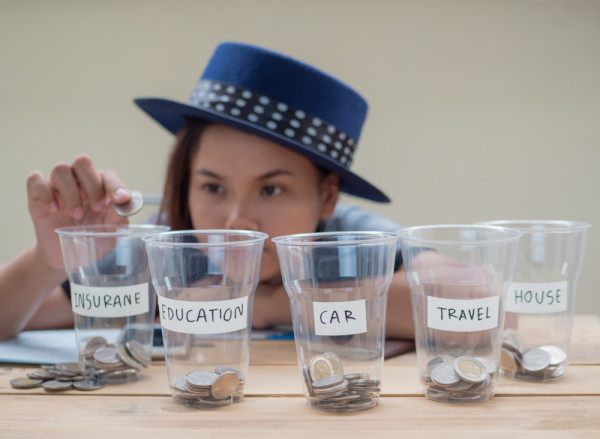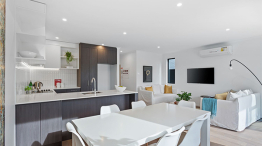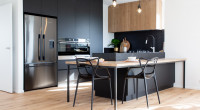8 budgeting tips to grow your deposit
Get more Living in your inbox
Sign up to Living-news to receive top tips and inspirational content
Subscribe
Saving up for a deposit as a First Home Buyer can be hard. Many of you will find yourself in a place where you’re only just finding your feet, building your career and your circle of friends. You want to explore and travel – and let’s be honest, have fun. So putting the handbrake on what little disposable income you may have, is tough – but not impossible.
There’s plenty of great budgeting advice out there and we think these top 8 budgeting tips can not only help you save for a deposit but help you get there sooner. They're also pretty handy life hacks for handling your money in the future too.
1. Plan ahead. Remember the saying ‘If you fail to plan, you plan to fail?’ Well, that’s so true with money. Take time out and plan your month or your year ahead. Write down all your expenses, income, savings, and some of the things you want to do – like that beach holiday or tickets to see a rock concert. Once you’ve got everything down – now set a realistic budget to pay for it all. You can find useful budgeting tools on many sites like Sorted.
2. Start early. You hear so many stories of young people who started saving for their first home even when they were at school. While that might not be the norm, it is true – the earlier you can start saving – the earlier you’ll hit your goal. And the magic of compounding interest (that’s getting paid interest on top of your interest) can see your savings grow much faster.

3. Save first. Typically, we tend to put what’s left at the end of the month into savings. But the smart savers do it the other way around. They put their savings away first – and treat it like a fixed expense, something not to be touched.
4. Needs and wants. A good tip when sorting out your budget is to separate things into ‘Needs and Wants’. Needs are essentials – like paying the power bill, rent, insurance etc. Whereas wants are those fancy new shoes, that super gourmet yoghurt, the tickets to the rugby. Don’t rule fun out entirely – always leave money on the table for fun but make sure it stays within your budget.

5. Stay on track. There’s an app these days for just about everything and luckily tracking your spending is one of them. Most banks have an app you can download to your smartphone. Or you can go to the app store and download one of the many free apps that are out there. We like Pocketsmith and it’s Kiwi!
6. Expect the unexpected. Life never quite goes to plan and there are always surprises. Some good - like a new addition to the family or long-lost friends dropping in. Then there are those more painful ones – the car failing its warrant or a big jump in rent. The best tip is to have an emergency fund put aside for those occasions. But you have to be disciplined because running out of your favourite lippy is not really an emergency…though some may argue otherwise!

7. Review the numbers. As we’ve said, things change – so it’s good to give your numbers a sense check after a few months to see if they are realistic or not. If you find you are coping and have money left over at the end of each pay round, then you’re in good shape. But if it’s a struggle and you are just not making ends meet, then relook at your budget and perhaps some of your spending behaviours.
8. Pamper day. It’s important to have something to look forward to when you are saving hard. Set aside a day where you can pamper yourselves. It doesn’t have to be expensive. It can be creative and a little indulgent. An indoor picnic with rugs on the floor, some prosecco and strawberries can be a lot of fun in the heart of winter! Or a cheapie night at the movies and sneak in your own choccies.

Budgeting to save for your new home can be a little daunting but in reality, you can plan a budget in a couple of hours. If you’re buying a house with a partner, working through the budget together can be fun and also eye-opening when you realise just where your money is going. It’s a healthy habit to start!
We use cookies to ensure that we give you the best experience on our website. By continuing to use this website you are giving consent to cookies being used. View our privacy policy and terms of use for more details.












